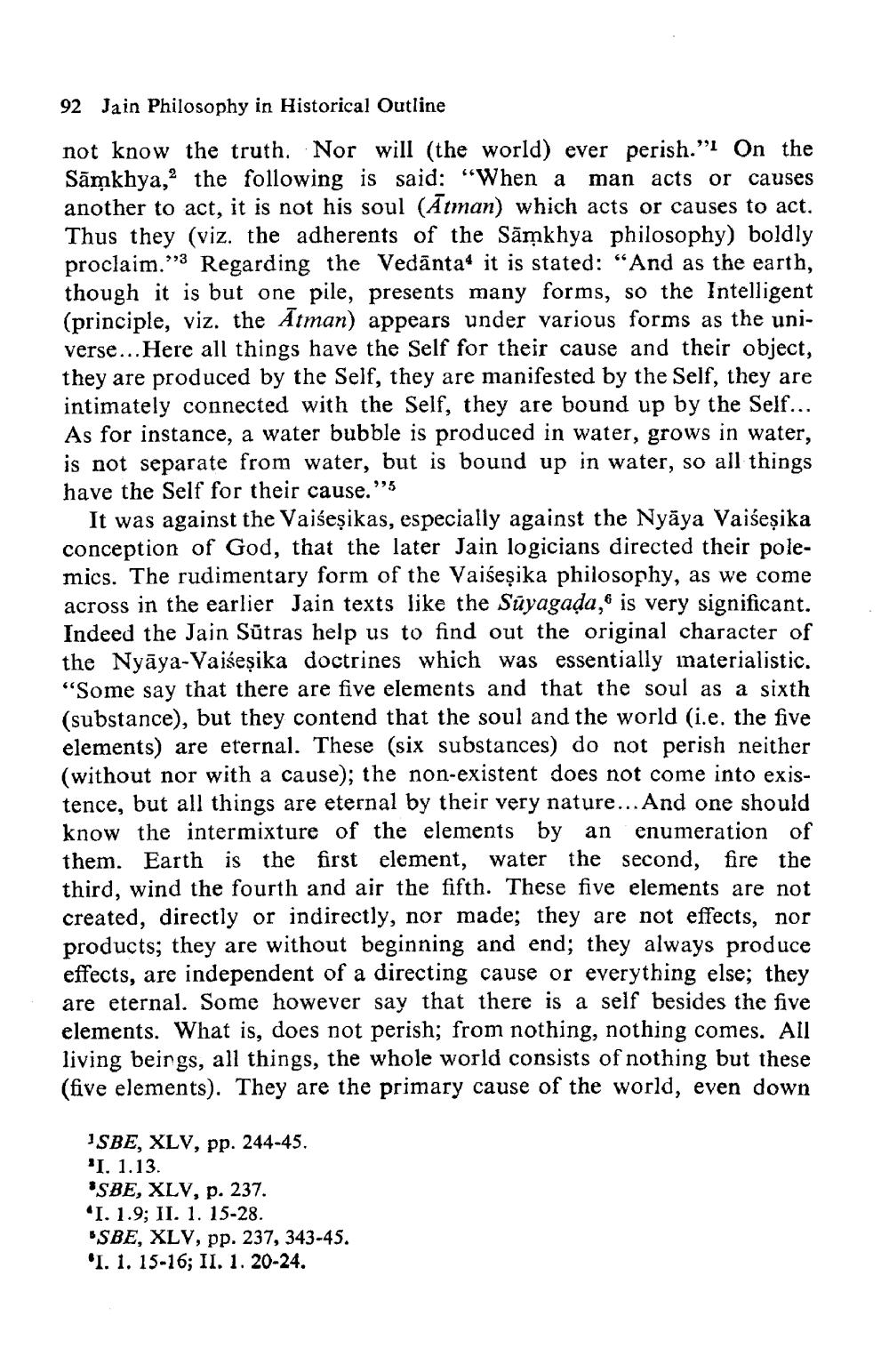________________
92 Jain Philosophy in Historical Outline
not know the truth. Nor will (the world) ever perish." On the Samkhya, the following is said: "When a man acts or causes another to act, it is not his soul (Atman) which acts or causes to act. Thus they (viz. the adherents of the Samkhya philosophy) boldly proclaim." Regarding the Vedanta1 it is stated: "And as the earth, though it is but one pile, presents many forms, so the Intelligent (principle, viz. the Atman) appears under various forms as the universe... Here all things have the Self for their cause and their object, they are produced by the Self, they are manifested by the Self, they are intimately connected with the Self, they are bound up by the Self... As for instance, a water bubble is produced in water, grows in water, is not separate from water, but is bound up in water, so all things have the Self for their cause."'5
It was against the Vaiśeşikas, especially against the Nyaya Vaiśeşika conception of God, that the later Jain logicians directed their polemics. The rudimentary form of the Vaiseṣika philosophy, as we come across in the earlier Jain texts like the Suyagaḍa, is very significant. Indeed the Jain Sutras help us to find out the original character of the Nyaya-Vaiśeşika doctrines which was essentially materialistic. "Some say that there are five elements and that the soul as a sixth (substance), but they contend that the soul and the world (i.e. the five elements) are eternal. These (six substances) do not perish neither (without nor with a cause); the non-existent does not come into existence, but all things are eternal by their very nature... And one should know the intermixture of the elements by an enumeration of them. Earth is the first element, water the second, fire the third, wind the fourth and air the fifth. These five elements are not created, directly or indirectly, nor made; they are not effects, nor products; they are without beginning and end; they always produce effects, are independent of a directing cause or everything else; they are eternal. Some however say that there is a self besides the five elements. What is, does not perish; from nothing, nothing comes. All living beings, all things, the whole world consists of nothing but these (five elements). They are the primary cause of the world, even down
1SBE, XLV, pp. 244-45.
'I. 1.13.
'SBE, XLV, p. 237.
"I. 1.9; II. 1. 15-28.
'SBE, XLV, pp. 237, 343-45. I. 1. 15-16; II. 1. 20-24.




